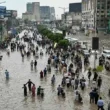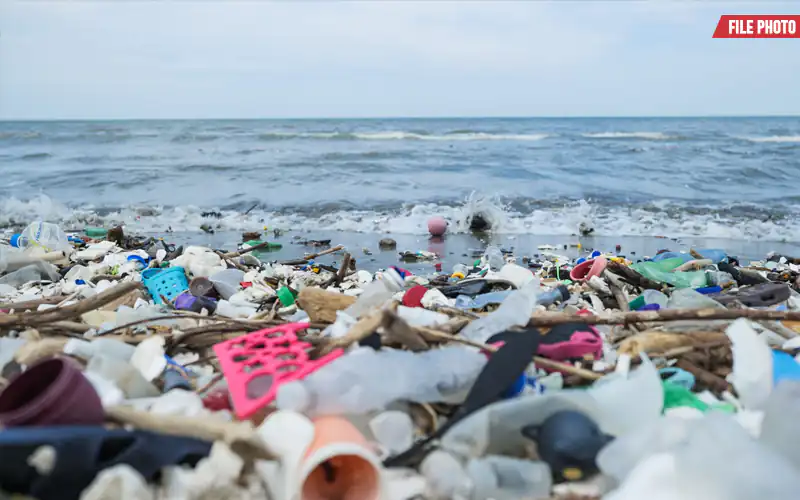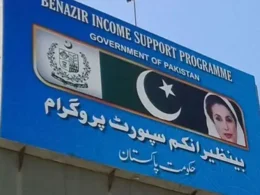The World Wide Fund for Nature Pakistan (WWF-Pakistan) has urged the government to impose an immediate and nationwide ban on the production and consumption of all single-use plastics.
The demand was made through an official press release during the global Plastic-Free July campaign.
The organization cited severe environmental and health risks caused by plastic waste, especially its role in worsening the recent monsoon flooding.
According to WWF-Pakistan, widespread rainfall and flash flooding in several parts of the country have killed over 280 people. The disaster has damaged critical infrastructure, disrupted the economy, and harmed fragile ecosystems.
One of the major culprits identified is floating plastic waste, which blocks drainage systems and contributes to prolonged urban flooding.
WWF-Pakistan emphasized that floating plastics and poor waste management have worsened the flooding situation in major urban centers. Choked drainage systems have caused long-term waterlogging in many areas. This has led to serious structural damage to roads, buildings, and bridges.
In flood-affected regions with weak waste management, stagnant water has triggered outbreaks of waterborne diseases, putting public health at further risk.
Plastic waste is now considered one of the most pressing environmental threats globally. A 2022 report by the Organization for Economic Cooperation and Development (OECD) highlighted that plastic production worldwide has nearly doubled.
It rose from 234 million tonnes (Mt) in 2000 to 460 million tonnes in 2019. If production continues at this pace, plastic will remain a growing source of environmental harm, public health hazards, and climate change acceleration.
Microplastics now found in human organs
WWF-Pakistan raised strong concern over microplastics, which form when plastics break down. These microplastics contaminate soil, freshwater systems, and oceans. They have now been found in air, water, food, and even human organs. Recent studies have detected micro plastics in human lungs and the placenta of newborn babies. WWF-Pakistan warned that the risk of exposure to microplastics is increasing every day, threatening food safety and public health.
WWF-Pakistan’s Director General, Hammad Naqi Khan, explained that plastic pollution threatens biodiversity at every level. “Plastics break into microplastics, damage soil fertility, and pollute rivers like the Indus,” he said. A large volume of plastic waste from Pakistan’s upper riparian regions enters the Indus River. It travels downstream toward Kotri Barrage, eventually reaching the Arabian Sea. This harms freshwater ecosystems and coastal biodiversity, especially marine species.
He further added that plastic production contributes heavily to global carbon emissions, making the crisis both environmental and climatic. “To tackle this, Pakistan must adopt robust waste management and limit carbon-intensive industries like plastic manufacturing,” he said.
Read More: WWF Pakistan calls on Sindh to establish new marine protected zones
WWF-Pakistan is working closely with local governments, public organizations, and communities to combat plastic pollution:
- It has launched advocacy campaigns to raise awareness about plastic waste.
- It organizes beach cleaning activities and cleanup drives across the country.
- Several projects are in place to reduce plastic leakage and improve livelihoods.
To promote circular economies, WWF-Pakistan has trained over 50 local women in Karachi and Islamabad. These women now recycle hard-to-process multi-layered plastics (MLPs) into marketable products, creating income opportunities and reducing environmental damage.
Karachi coastline scoping study & litter boom
Through a detailed scoping study, WWF-Pakistan identified key plastic leakage points along the Karachi coast. A litter boom was installed at the Karachi Fish Harbour, which has so far retrieved over 2,500 tonnes of floating waste from coastal waters.
WWF-Pakistan has also launched the Plastic Bank Initiative across five major Karachi universities. Each site includes:
- Plastic Recovery Banks
- Segregated recycling bins
- Educational materials to teach students and staff about proper waste disposal
These universities now play a role in managing plastic waste at the source while engaging youth in sustainability efforts.
Urgent call to action
The organization has urged the government to impose an immediate and nationwide ban on all plastic production and consumption. The organization stressed that both policy changes and citizen behavior are necessary to solve the crisis.
To support this effort, WWF-Pakistan urges citizens to take immediate action by stopping the use of plastic bags, bottles, and packaging.
Instead, people should shift to eco-friendly alternatives that are safer for the environment. The organization also encourages individuals to actively participate in community cleanups and recycling efforts to reduce plastic pollution and promote sustainable living.
In its statement, WWF-Pakistan concluded that ending plastic pollution is vital to protect public health, biodiversity, and climate resilience.
Without immediate action, the consequences of plastic waste will only intensify.
Disclaimer:









